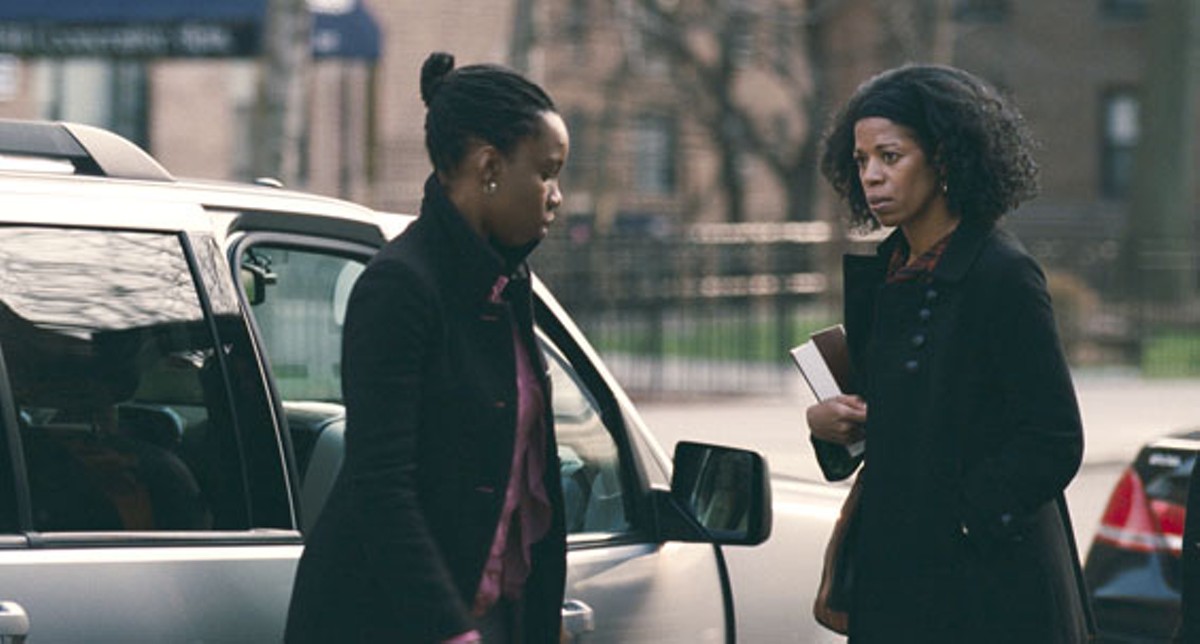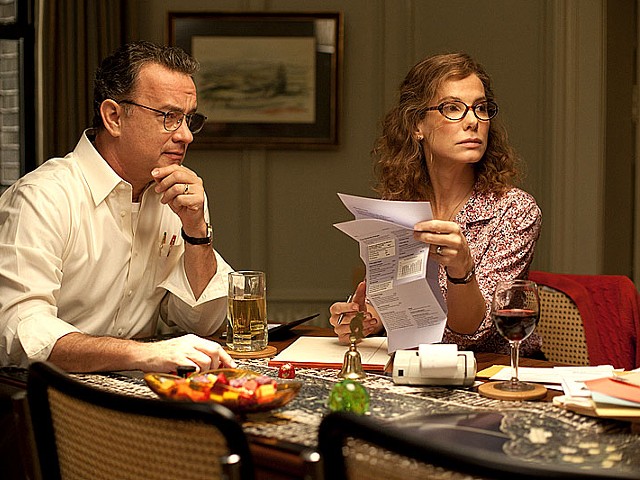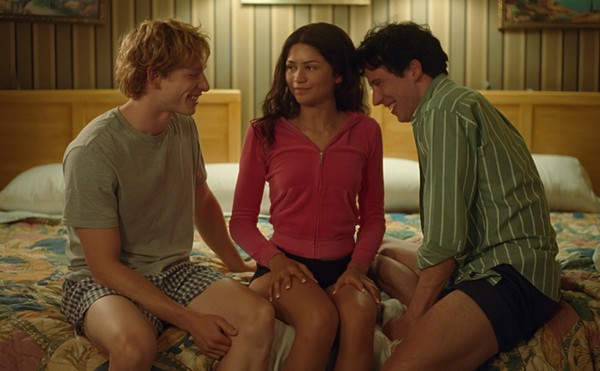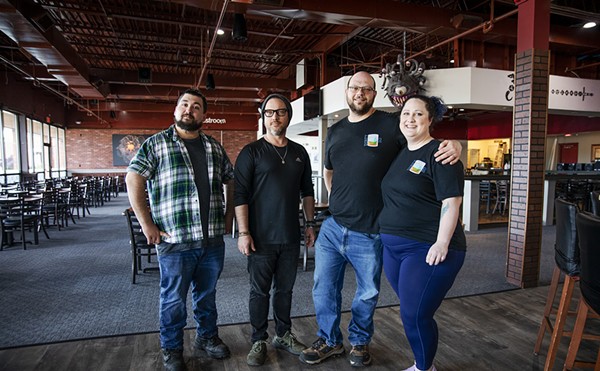The first ten minutes of Dee Rees's funny, moving, nuanced and impeccably acted first feature, in which coming of age and coming out are inseparable, sharply reveal the conflicts that seventeen-year-old Alike (Adepero Oduye) faces. At a lesbian club — maybe for the first time — she gapes in awe and no small amount of terror at the raunchy pole dancer grinding to an even raunchier song (Khia's "My Neck, My Back"). Sitting on a banquette, the teenager watches as femmes and butches (or AGs, for "aggressives"), including her swaggering best friend, Laura (Pernell Walker), pair off. But the straight-A student, hoping to find a girlfriend, or, at the very least, someone to kiss, grows more concerned about making it home before curfew. On the bus back to her Fort Greene, Brooklyn, residence, Alike takes off her club outfit of oversize boy's polo shirt, do-rag and baseball cap, switching to a light-pink scoop-neck shirt with "angel" written in gold sequins, affixing earrings and pulling her braids back into a bun. After we see the large crucifix in the her house and meet her mother, Audrey (Kim Wayans), who compliments Alike on her girly top before reprimanding her for her friendship with Laura ("I don't like that young lady that you run around with"), the reason for the quick change becomes obvious.
Like the best films about adolescence, from Truffaut's Antoine Doinel movies to So Yong Kim's In Between Days, Pariah — about one lower-middle-class, African American, lesbian teen — is a profoundly specific film centering on universal themes: discovering who and what you are drawn to, fighting for autonomy against arbitrary parental rules, or, in this case, tyranny. Alike's sexuality, blithely acknowledged at school, where she slips into AG attire in a bathroom stall, remains until its defiant articulation in the closing scenes an open, corrosive secret in her family. Her mother will forebodingly announce to her that "God doesn't make mistakes" while her non-church-going, doting father (Charles Parnell), an NYPD detective still angry at his wife for sacrifices made long ago, will disingenuously ask Alike if she has heard of a new night spot — "called the Kitty Litter, the Cat Box, something like that" — before warning her to "stay away from that element." (Alike's boy-crazy fifteen-year-old sister Sharonda, played by Sahra Mellesse, is a tenuous ally.)
While her parents speak in veiled, threatening language, Alike loses herself more in the pleasure of words, meeting with her AP English teacher during lunch break and swapping poems with a crush, who introduces her to other kinds of pleasures. (That Alike's own butterfly-themed verse, read a few times throughout the film, proves more endearing than cloying only underscores Oduye's exceptional performance.)
As we watch Alike become more self-assured, Pariah, without a note of didacticism, also points out the all-too-common estrangement of queer teens (especially those of color), discarded by virulently homophobic parents. High school dropout Laura, a year or two older than Alike, has been living with her sister; the look of bitter contempt on her mother's face when Laura knocks on her door to share some good news makes clear that she was kicked out and will never be welcome. That Laura even has a place to stay makes her much more fortunate than some of her pals, one of whom she offers the couch (and some lunch meat) for a night.
Alike, with more options than Laura, will eventually emancipate herself from an increasingly untenable situation at home. Throwing her mother's own sanctimonious words back in her face, Alike's decisions, borne of burgeoning self-confidence, demonstrate the truest spirit of gay pride: standing up to bullies, particularly those who gave birth to you.






